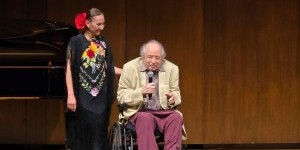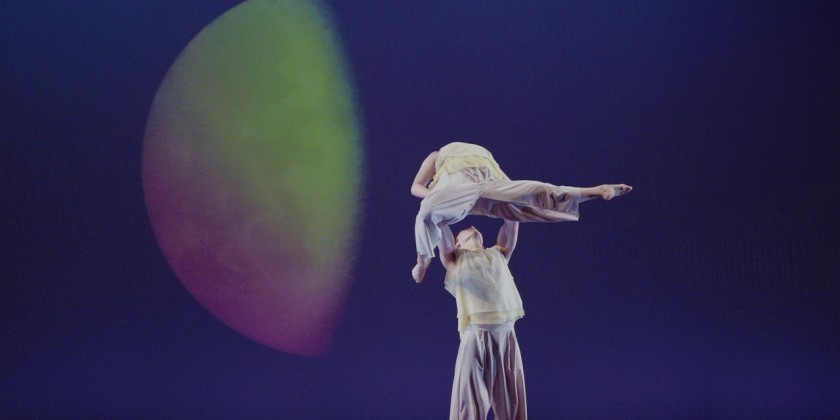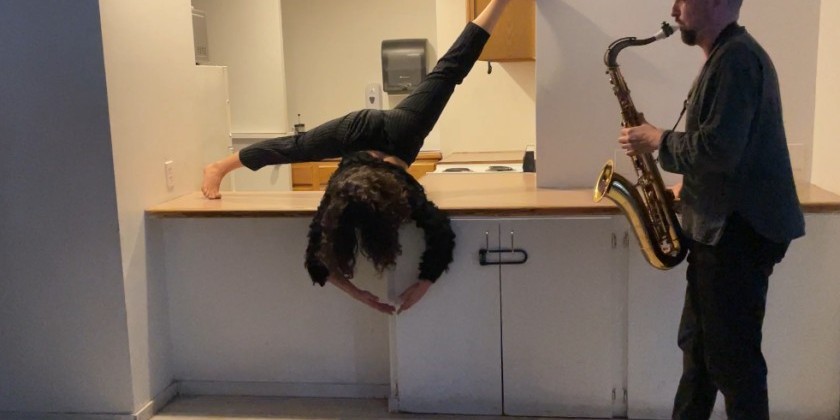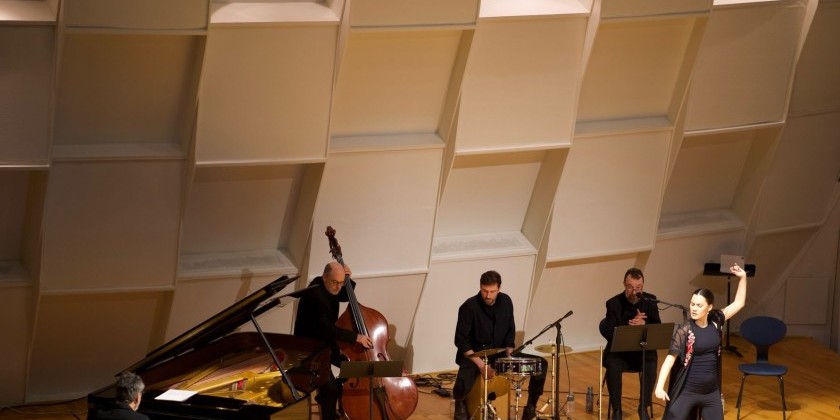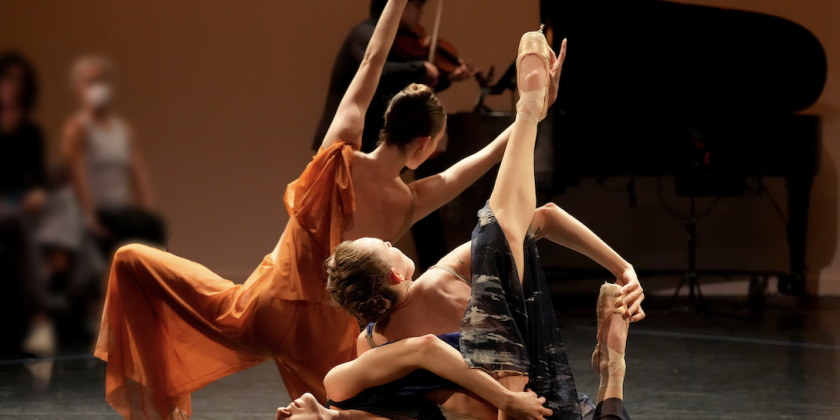AUDIENCE REVIEW: Unequal Materials leave less than satisfied response to Ferri, Cornejo, and Levingston
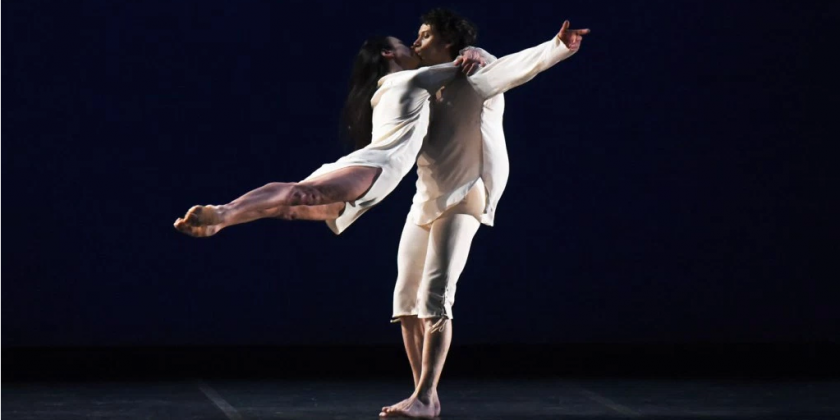
Company:
Trio Concert Dance
Performance Date:
March 2nd, 2016
Freeform Review:
On Wednesday, March 2nd, 2016 I found myself surrounded by noteworthy dancers, artistic directors, choreographers, and producers who had all come to see Alessandra Ferri and Herman Cornejo dance at The Joyce. Nothing against Bruce Levingston, the wonderful concert pianist who completed this trio of artists and whose contributions would prove indispensable, but what pulled this crowd in on a cold winter evening was the prospect of seeing Ferri return to New York's concert stage accompanied by a new partner. Many of us remember the heat generated by Ferri's relationship with Julio Bocca and were eager to see if this affair with Cornejo would prove to be as revitalising as Fonteyn's pairing with Nureyev.
Ferri is a fascinating study in contradictions. Her femininity compels one to partner and cherish her. Her slight form suggests an unspoiled sweetness that cannot make it on its own. Her personal allure is that she appears paradoxically girlish and womanly in the same breath: innocent and wicked. She is never pretty; she is beautiful. That fact was highlighted in this concert by her decision not to wear a lick of makeup; it was unnecasssary. Though physically unadorned her seductive manner had one sitting erect with bated breath. Ferri initiates every movement from a correct academic position: pas de cheval extends to dégagé and then floats up to head level before turning into a back arching attitude; controlled yet orgasmic and never rushed. On her own, though blessed with a startlingly supple and extremely flexible physique, she seems fragile- almost like a waif, though a waif who knows a bit too much about the ways of the world. She projects vulnerability and then comes to life with zeal the moment a man has her in his embrace in a such a way that you worry about what he would do without her to guide him guiding her. When she wraps her legs around her partner you are sure that she could crush the life out of him, though she never does. Instead she caresses his face with adoring eyes that say, 'You'll do... for now'. In short, she is a reformed femme fatale.
In Cornejo one has technical perfection. Pardon the double negative: there is nothing he cannot physically accomplish- which leaves me to ponder what exactly he wished to accomplish with this concert. One would expect Cornejo to be the perfect stand in for the audience. He is young and has that same dark beauty about him that Julio Bocca possessed. Of course Cornejo is a very different artist. Though both men are virtuoso dancers and gifted partners, with Cornejo we get something cooler and more calculating. He is more akin to the unknowable woman of Balanchine lore; mysterious, stoic, and calculating. This sensibility stands in marked contrast with the erotic charge that Ferri generates. More than smoldering sensuality, with Ferri we see a desire to devour her partner and to be consumed by him as well. Unfortunately that affect was lacking in Cornejo. The mutual lust that Ferri and Bocca showed for one another onstage was nowhere to be found. Though choreographically the steps allocated to Cornejo compelled him to go along for the ride, I did not feel that he would have done so were other movements available to him. Not that I could blame him; for the most part the choreography was generic. But again, he was onstage with Alessandra Ferri. Where was the fire? My guess is that it was smothered by the suffocating choreograpy.
If you were to ask me to name a theme for this concert I would suggest, "a mistrust of distance". With Levingston, though we all luxuriated in the atmosphere that his playing summoned, there were only a few brief moments of physical connection between him and the dancers. This left all connecting to the dancers, and on a purely tactile level they certainly did connect. Cornejo and Ferri spent more time together than apart, leaving us clueless as to who they were independent of each other. In spite of what they did together, I never got an idea of what their relationship was or why they were dancing with one another. The choreographers, Russell Maliphant, Demi Volpe, and Stanton Welch took every opportunity they could find to bring the dancers together in lifts, hugs, embraces, and partnered turns (Fang-Yi Sheu contributed a solo for Ferri and Cornejo sketched out one for himself; neither works revealed anything new about the dancers) . How much more interesting it would have been to have seen a bit of distance between these two- her perfume drawing him in rather than his compliant march to the beat of standard pas de deux conventions.
Interestingly this idea came to life during the frequently performed in galas pas de deux from Angelin Preljocaj's ballet, Le Parc. This excerpt opens with the two lovers (because in this concert they were always lovers) facing off against one another, as if in conflict. Cornejo as ever stoically observed Ferri, however this time, instead of flying like a moth to the flame Ferri had to work to pull him in. She pressed her palm against her pelvis, whipped her hair about, pointed at Cornejo with two fingers, then stuck them into her mouth and bit them as she turned around herself. Eventually she approached him. They danced. Then she kissed him. It was a kiss that she took, not one that was given. She rose en rélevé to meet him lip to lip before wrapping her arms around his neck. He did not return the affection. Instead he leaned away and began to turn with his arms held open. Were she not clinging to him for dear life, his revolutions would have sent her flying. Finally he decelerated and gathered her into his arms. He held her; she wore him down; he forgave her. Was that really the story? Who knows, but it was refreshing to have to think about what was going on. For once, Ferri had to struggle for Cornejo's love and he had to consider whether he would give it. Or not. Finally the conclusion was far from foregone.
Even if the material for this pas was tripe (I happen to enjoy Le Parc though I know many people who consider it a contrived costume drama) it allowed us to see a relationship develop. It showed us the potential majesty of a Ferri - Cornejo partnership. In this collection of short dances we missed out on experiencing the satisfying arc of a beginning, middle, and end. The drama was muted by the ever present smiling and expressions of ballet happiness. For Ferri, it is the easiest thing in the world to make a one hit wonder play like a symphony- she is after all the greatest dramatic ballerina of her and this age. Cornejo needs stronger material to express himself. It is possible that he is the more sensitive artist of the two; only capable of showing his true worth through work worthy of his talent. This is not a slight against Ferri. She is a phenomenon, much like Katharine Hepburn or Julio Bocca; an intuitive beast who knows how to play every scene no matter how weak the material to maximum effect. Were the material stronger or worthier of these artist, perhaps the clichés would not have landed with a such a thud. Perhaps that is what left this concert feeling less than satisfying despite the incredible artists. For a partnership to thrive it must be nourished with substantive material. Ferri and Bocca had Romeo and Juliet. All Ferri and Cornejo had was an excerpt from Le Parc and Romeo and Juliet redux a la Stanton Welch- though of course we all applauded wildly. How could we not? A great ballerina had returned to the stage undiminished and with a new swain. Here's hoping that the two in Romeo and Juliet at The Met with ABT this Spring will prove more enriching than this experiment. If not, at least we'll always have Ferri and Bocca on Youtube: https://www.youtube.com/watch?v=XXeTOhrkLsg
– Juan Michael Porter II





